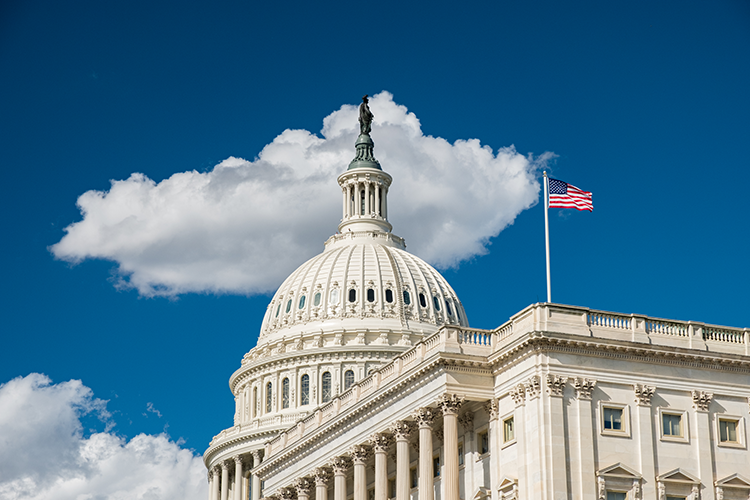DC Circuit spares DOJ 'immediate disaster' in Jan. 6 prosecutions but raises concerns about obstruction charges

Image from Shutterstock.
The U.S. Court of Appeals for the District of Columbia Circuit ruled 2-1 on Friday that the government can prosecute alleged Jan. 6, 2021, rioters for corruptly obstructing an official proceeding—even in cases that did not involve tampering with documents.
The April 7 decision “spared the Justice Department an immediate disaster,” Politico reports.
But the opinion raised questions about the obstruction charge’s “corrupt intent” requirement, which could pose a problem in some obstruction cases.
U.S. District Judge Carl Nichols of the District of Columbia had ruled last year that the obstruction charge applies only to defendants who tampered with official documents or records during the 2021 attack on the U.S. Capitol. The D.C. Circuit reversed on the tampering issue and revived the charge against three Jan. 6 defendants.
But a concurring opinion by U.S. Circuit Judge Justin Walker said the corrupt-intent requirement means that a defendant can’t be convicted of obstruction unless they intend to obtain a benefit that they know is unlawful.
In her majority opinion, U.S. Circuit Judge Florence Pan said there is no need to decide the intent issue in the case before the court because all three defendants were charged with assaulting police officers. Corrupt intent at least exists when an obstructive action is independently unlawful, and there is no question that the assault defendants had corrupt intent, Pan said.
Walker asserted that his view of corrupt intent should prevail under a 1977 U.S. Supreme Court precedent that says when there are fragmented opinions, the narrowest grounds should be considered the court’s holding. Pan disagreed.
“The concurring opinion’s attempt to establish its view as controlling must fail because a majority of the panel has expressly declined to endorse the concurrence’s definition of ‘corruptly,’” Pan said.
The dissenter, U.S. Circuit Judge Gregory Katsas, argued that the opinions by Pan and Walker “would continue to supercharge comparatively minor advocacy, lobbying and protest offenses into 20-year felonies, provided the defendant knows he is acting unlawfully in some small way.”
Katsas said the obstruction statute should be limited to conduct that impairs the integrity or the availability of evidence.
Politico reports that defense lawyers for Jan. 6 defendants “are already poring over Walker’s analysis.”
The government has used the felony obstruction charge against more than 300 people charged in the Capitol riot. According to Politico, the government has sometimes used the charge—which carries a maximum 20-year sentence—as a “cudgel” in plea negotiations.
“The stakes of the lingering issue are enormous,” Politico said.
The story also noted that the House select committee that investigated the Jan. 6 attack on the Capitol urged the Department of Justice to charge former President Donald Trump with obstruction.
“Any ruling narrowing the definition of ‘corrupt intent’ could take such a charge off the table,” Politico said.
The case is United States v. Fischer.
Law360 and Law.com also have coverage.
Write a letter to the editor, share a story tip or update, or report an error.



